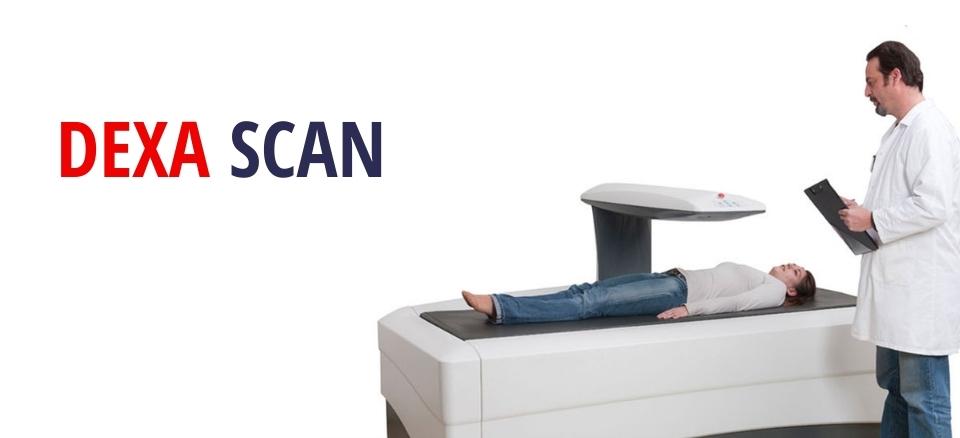
In today’s health-conscious world, understanding your body’s internal structure is key to proactive care. Among the most advanced diagnostic tools, the Dexa scan stands out for its precision in assessing bone density and body composition. But what exactly is a Dexa scan, and why should it matter to you? In this article, we’ll explore the science behind Dexa scans, their benefits, and how they can empower you to unlock your bone health secrets.
What Is a Dexa Scan?
A Dexa scan, short for Dual-Energy X-ray Absorptiometry, is a non-invasive medical test that measures bone mineral density (BMD). It utilizes low-dose X-rays to assess bone strength and detect issues such as osteoporosis.
How Does It Work?
- Dual X-ray Beams: Two X-ray beams with differing energy levels pass through your body.
- Absorption Measurement: The scanner measures how much of each beam is absorbed by the bones.
- Bone Health Evaluation: Results are analyzed to evaluate bone density and overall health.
Why Is Bone Health Important?
Strong bones are essential for mobility, protection of internal organs, and overall vitality. However, factors like aging, genetics, and lifestyle choices can lead to conditions such as osteoporosis, increasing the risk of fractures.
Benefits of a Dexa Scan
- Early Detection of Osteoporosis: Catch bone density loss early before it becomes severe.
- Personalized Treatment Plans: Helps doctors tailor interventions based on precise data.
- Body Composition Analysis: Beyond bones, Dexa scans measure fat and muscle mass for a complete health profile.
- Non-Invasive and Quick: A simple, painless procedure that takes less than 30 minutes.
Who Should Get a Dexa Scan?
While anyone can benefit, certain individuals are at a higher risk of bone density loss:
- Postmenopausal women.
- Men over 50 with risk factors.
- Individuals with a family history of osteoporosis.
- People taking medications that affect bone health, like steroids.
- Athletes looking to optimize performance through body composition insights.
Preparing for Your Dexa Scan
- Wear Loose Clothing: Avoid zippers or metal.
- Avoid Calcium Supplements: Refrain from taking them 24 hours before the test.
- No Special Fasting: Regular meals are fine unless instructed otherwise.
Interpreting Your Dexa Scan Results
Dexa scan results are presented as a T-score and Z-score:
- T-score: Compares your bone density with a young, healthy reference population.
- Normal: -1.0 and above.
- Osteopenia: Between -1.0 and -2.5.
- Osteoporosis: Below -2.5.
- Z-score: Compares your results to people of the same age and gender.
How to Improve Bone Health?
- Dietary Adjustments: Incorporate calcium-rich foods like dairy, leafy greens, and fortified cereals.
- Vitamin D: Get adequate sunlight or consider supplements.
- Regular Exercise: Weight-bearing exercises such as walking, jogging, or yoga strengthen bones.
- Lifestyle Choices: Avoid smoking and limit alcohol consumption.
The Role of Dexa Scans in Preventive Healthcare
Dexa scans don’t just help diagnose problems; they enable preventive care. With actionable data, you can take steps to fortify your bone health and reduce future risks.
Conclusion
Your bones are the foundation of your body, and maintaining their health is crucial for a long, active life. A Dexa scan is a powerful tool to decode the secrets of your bone health, offering insights that can transform your wellness journey. Whether you’re aiming to prevent osteoporosis or improve body composition, a Dexa scan provides the clarity you need to make informed decisions.
FAQs
1. What is the cost of a Dexa scan?
The cost varies depending on location and healthcare providers but typically ranges between $100 and $300.
2. Is a Dexa scan safe?
Yes, the radiation exposure from a Dexa scan is minimal, much lower than a standard X-ray.
3. How often should I get a Dexa scan?
For most people, once every two years is sufficient unless your doctor recommends more frequent monitoring.
4. Can Dexa scans measure body fat?
Yes, in addition to bone density, Dexa scans provide detailed insights into body composition, including fat and muscle mass.
5. Do I need a referral for a Dexa scan?
In many places, you need a doctor’s referral to schedule a Dexa scan.
6. Are there any side effects of a Dexa scan?
There are no known side effects as it is a non-invasive and painless procedure.
7. Can children undergo a Dexa scan?
While it’s rare, children may undergo Dexa scans for specific medical conditions under a doctor’s guidance.
8. How long does the procedure take?
The entire procedure typically takes 20-30 minutes.
9. What should I do if my T-score indicates osteoporosis?
Consult your doctor for a treatment plan, which may include medication, dietary changes, and exercise recommendations.
10. Does insurance cover Dexa scans?
Many insurance plans cover Dexa scans, especially if they are medically necessary.